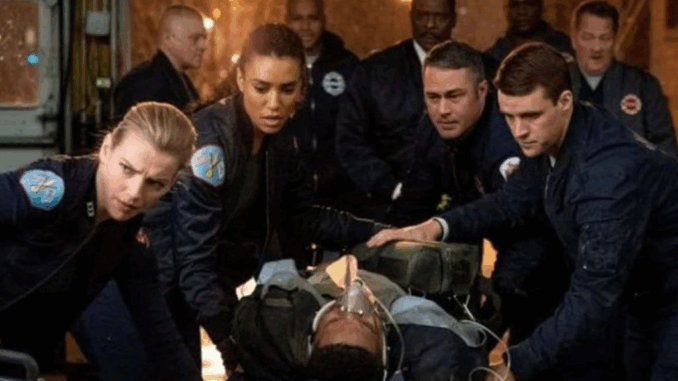
Chicago Fire Season 13 Finale: A Promising Wrap-Up with a Troubling Shake-Up Ahead
The Chicago Fire Season 13 finale managed to tie up the year’s chaos with a satisfying sense of closure—at least on the surface. Chief Pascal’s (Dermot Mulroney) true motivations were finally revealed, clearing the cloud of suspicion hanging over Firehouse 51’s leadership. Herrmann (David Eigenberg) made a career-defining choice, declining the captain’s test and leaving the lieutenant position to Mouch (Christian Stolte), marking a heartwarming moment of friendship and humility. And after the devastating loss of a potential adoption in “Cut Me Open,” Stellaride fans finally got the emotional payoff they deserved: Kidd (Miranda Rae Mayo) and Severide (Taylor Kinney) are expecting a baby. It’s a joyful revelation that promises a fresh and hopeful storyline for Season 14.
But as sweet as these endings are, they also set the stage for a storm of changes—and not necessarily the good kind.
Firehouse 51 Is Facing a Major Overhaul… Again
Season 14 promises big transitions, and not all of them are welcome. Jake Lockett (Carver) and Daniel Kyri (Ritter) are both confirmed to be leaving the series—Carver via a new job in Denver, and Ritter through still-unknown means. That alone signals a major reshuffle. The heartbreak? These exits come just as their storylines were hitting their stride.
Carver and Violet (Hanako Greensmith) finally confessed their feelings in a long-awaited romantic moment, only for Carver to pack his bags for Denver. The show has been building their relationship for months—now it’s likely over before it even began. Will Violet be left heartbroken, or will she follow him, echoing Sylvie and Casey’s long-distance storyline? Either way, it’s a disappointing payoff.
Ritter’s arc is even fresher. His dynamic with Novak (Jocelyn Hudon) offered real potential—an odd-couple cohabitation with emotional and comedic possibilities. But now? That story is likely dead on arrival, as viewers are left guessing not just what might’ve been, but how he’ll even be written out.
Chicago Fire’s Real Problem: A Revolving Door of Characters
Let’s be honest: part of what’s so frustrating about Carver and Ritter’s exits is that it feels like Chicago Fire is sacrificing the “new blood” instead of taking risks with long-established characters. Carver debuted in Season 11, Ritter in Season 7—by franchise standards, they’re relatively new, with plenty of stories still to tell. Yet they’re the ones exiting, while veterans like Severide and Herrmann remain untouched.
It sends the wrong message: that newer characters are disposable, temporary, not worth getting attached to. And that makes it harder for fans to invest. Are we really sad about losing Carver himself—or just afraid Violet might follow him, robbing us of yet another beloved original? His legacy might end up being nothing more than a footnote for hardcore One Chicago fans.
This pattern also undermines the impact of returning characters. Sure, seeing a familiar face pop back in is a fun surprise—but if they’ve left once, how much emotional weight does their return really carry? There’s always a question mark: how long before they’re gone again?
Other Shows Have Reshuffling Figured Out—Why Doesn’t Chicago Fire?
To be clear, the issue isn’t with reshuffling itself—it’s with how often it happens, when it happens, and who it happens to. Grey’s Anatomy is proof that turnover can be done right. Over 21 seasons, it’s mastered the balance: introducing new characters slowly, letting viewers fall for them, and phasing out old ones at just the right moment to keep the ensemble fresh without ever losing its core.
Chicago Fire hasn’t quite found that rhythm. The constant cast churn gives promising storylines the axe just when they’re getting interesting. And with each reshuffle, it becomes a little harder for fans to feel secure in their emotional investment.
Season 14 could be a turning point—for better or worse. There’s still time to course-correct, to bring back some old faces, or give new ones the time and space they deserve to grow. But it’s clear now: the showrunners need to start treating character turnover not as routine maintenance but as high-stakes storytelling. Otherwise, they risk burning out the very passion that’s kept Firehouse 51 alive all these years.
